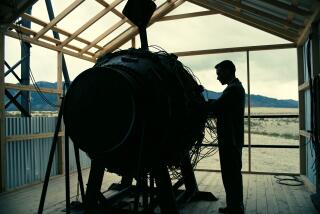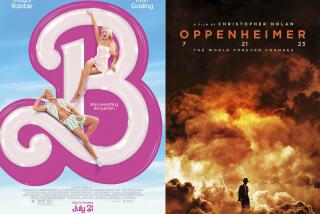Pearl Harbor Comparisons Upset Japan
- Share via
TOKYO — As televisions around the world repeatedly show images of planes crashing into buildings, frantic rescue efforts and unprecedented destruction, a common refrain is being heard: This is America’s second Pearl Harbor.
Many Japanese, however, find the comparison offensive, especially coming from senior U.S. politicians and well-respected analysts.
“They’ve said this so often since Tuesday morning, and it really makes us feel uncomfortable,” said Yukari Nakase, chief editor of Shincho 45, a popular current events magazine. “The two incidents are completely different. You wonder, don’t they even consider Japan a close ally?”
Several people here said they understand that Americans are using the term to convey their profound shock and determination to unify in the face of a common threat. But the comparison still falls short, they said.
When 350 Japanese warplanes attacked U.S. Navy ships at Hawaii’s Pearl Harbor on Dec. 7, 1941, killing about 2,400 people, much of the world was at war. Tensions were running high, and Tokyo and Washington were both gearing up for war, said Hidehiko Hirose, a sociology professor at Toyo University.
“This situation is very different,” he said. “This is a horrendous attack on an office building known around the world as an American icon. This is truly shocking.”
Furthermore, said Keiichiro Kobori, professor of comparative culture at Meisei University, Japan was careful 60 years ago not to target civilians. “The formal declaration of war was just delayed because of an administrative snafu,” he said, reflecting a view commonly held among conservatives here. “Japan’s attack followed international rules. This case is the lawless hijacking of a passenger plane used to massacre civilians in peacetime.”
Not everyone is offended by the comparison, however. Megumi Sasaki, a 20-year-old university student, says she hasn’t really taken much note of the term. “I don’t really know that much about Pearl Harbor,” she added. “It happened a long time ago.”
Others blamed this week’s widespread use of the term on the opening earlier this year of the Disney film “Pearl Harbor.”
“Maybe the film encourages people to make a quick connection between this terrorist act and the historical Pearl Harbor,” said Hideo Takeichi, an international media professor at Sophia University. “But this makes Japanese feel very uncomfortable. Every time I hear it, it feels like I’ve got a fish bone stuck in my throat.”
The Pearl Harbor film was largely inoffensive to most Japanese, particularly the younger generation, because it was so sanitized, said Takaaki Sugiura, an independent film critic. “It was hyped, and it wasn’t even a great movie,” he said. “This is terrible reality that makes my legs go weak every time I think of such carnage.”
Added Yuri Senoue, 16, a high school student: “Americans could really misunderstand and end up with a bad feeling toward Japan.”
*
Makiko Inoue in The Times’ Tokyo Bureau contributed to this story.
More to Read
Sign up for Essential California
The most important California stories and recommendations in your inbox every morning.
You may occasionally receive promotional content from the Los Angeles Times.













